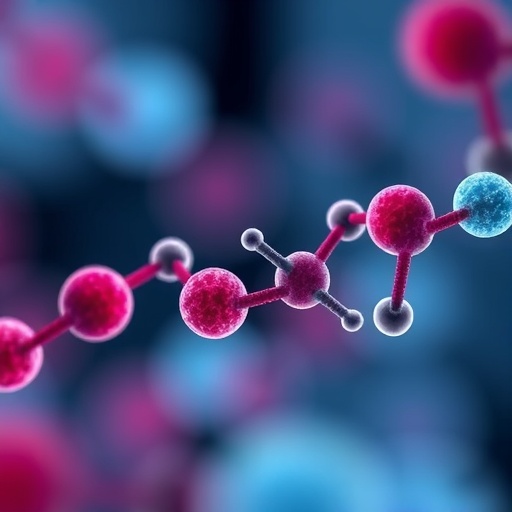Recent advances in the field of cancer research have revealed a multitude of complexities associated with tumor biology, particularly concerning drug metabolism and the mechanisms underlying therapeutic resistance. A pivotal study by Shaheed et al. seeks to bridge some of these gaps by conducting a comprehensive proteome profiling of cytochrome P450 isoforms in various cancer models. This innovative research delves into the nuances of enzyme activity and its implications for patient treatment outcomes. Cytochrome P450s are crucial enzymes involved in the metabolism of numerous pharmaceuticals, and their differential expression in cancer cells can lead to significant variations in drug efficacy.
Understanding the specific roles of these isoforms is essential, as they dictate how patients metabolize and respond to chemotherapy drugs. Variability in expression can account for treatment failures and adverse drug reactions that are commonly observed in clinical settings. The study employs advanced proteomic techniques to analyze the expression patterns of cytochrome P450 isoforms across various cancer types, contributing to a more personalized approach to oncology.
The implications of this research extend deeply into the realm of precision medicine, where tailored therapies are developed for individual patients based on their unique tumor biology. As the study showcases the diversity of cytochrome P450 expressions, it emerges that there is not a one-size-fits-all solution to cancer treatment. Instead, targeted strategies that take into account the specific protective and metabolic pathways of tumors can potentially enhance therapeutic effectiveness.
This deep dive into the proteome not only sheds light on metabolic pathways but also spotlights isoforms that may serve as biomarkers for disease progression or therapeutic response. Cancer cells often hijack metabolic pathways to sustain their growth and evade therapies, making cytochrome P450 isoforms prime candidates for further investigation. The meticulous profiling conducted by Shaheed et al. aids in identifying which isoforms are overexpressed or underexpressed in various cancers, paving the way for novel prognostic and diagnostic tools.
Moreover, the findings of this research may hold the key to overcoming drug resistance, a significant hurdle in oncology. By understanding how different isoforms of cytochrome P450 metabolize chemotherapeutic drugs, researchers may develop strategies to inhibit specific pathways that facilitate resistance, thus restoring sensitivity to treatments. This knowledge could help in the design of combination therapies that not only target tumor cells more effectively but also minimize the likelihood of resistance through synergistic mechanisms.
The methodology employed in this study represents the forefront of proteomic analysis, utilizing techniques such as mass spectrometry to achieve high-throughput analysis of protein expression. This technological sophistication enables a detailed view of even the subtle shifts in isoform expression that could have profound implications for patient outcomes. As researchers push the boundaries of what is possible in proteomics, we are likely to see an influx of studies focused on the precise characterization of metabolic enzymes in cancers.
Furthermore, the interplay between cytochrome P450 isoforms and other cellular pathways, such as those involved in inflammation and immune response, provides fertile ground for investigation. The cancer microenvironment is not isolated; it is a complex ecosystem whereby interactions between tumor cells and the stroma influence disease progression. This research underscores the need for a multidisciplinary approach, integrating insights from proteomics with those from genomics and metabolomics, which can yield a holistic perspective on cancer biology.
In light of the escalating rates of cancer diagnoses globally, this kind of research is not only timely but imperative. The urgency to innovate treatment options drives a significant amount of funding and collaboration amongst academia and pharmaceutical industries. As researchers strive to delineate these intricate pathways, the significance of cytochrome P450 isoforms becomes increasingly pronounced, underscoring their potential as both therapeutic targets and biomarkers.
The full potential of this work, showcased in Clin Proteom, lies in its ability to influence future clinical practices, moving us closer to a model of care that is not only based on generalized protocols but also tailored to individual biochemistries. By understanding how cancer cells exploit metabolic pathways, healthcare providers can better anticipate complications related to drug metabolism, leading to improved patient safety and outcomes.
As research progresses, it is crucial that the scientific community continues to disseminate these findings, facilitating discussions and collaborations that will ultimately lead to tangible advancements in cancer therapy. The identification of cytochrome P450 isoforms as critical players in cancer metabolism represents a paradigm shift in our understanding of cancer biology and treatment, signaling a future where care is not only more effective but also increasingly personalized.
In conclusion, Shaheed et al.’s study provides a robust framework for leveraging cytochrome P450 isoform profiling in the context of cancer research, emphasizing the vital link between metabolic pathways and treatment efficacy. As we bridge the gap between basic science and clinical application, this work stands as a beacon of hope in the ongoing battle against cancer, illuminating the path towards bespoke therapeutic interventions that could transform patient care.
Subject of Research: Cytochrome P450 isoforms in cancer models
Article Title: Comprehensive proteome profiling of cytochrome P450 isoforms in cancer models
Article References:
Shaheed, S.u., Al-Eidan, A.A., Pors, K. et al. Comprehensive proteome profiling of cytochrome P450 isoforms in cancer models.
Clin Proteom 22, 41 (2025). https://doi.org/10.1186/s12014-025-09565-1
Image Credits: AI Generated
DOI: 10.1186/s12014-025-09565-1
Keywords: Cytochrome P450, cancer metabolism, personalized medicine, proteomics, drug resistance




